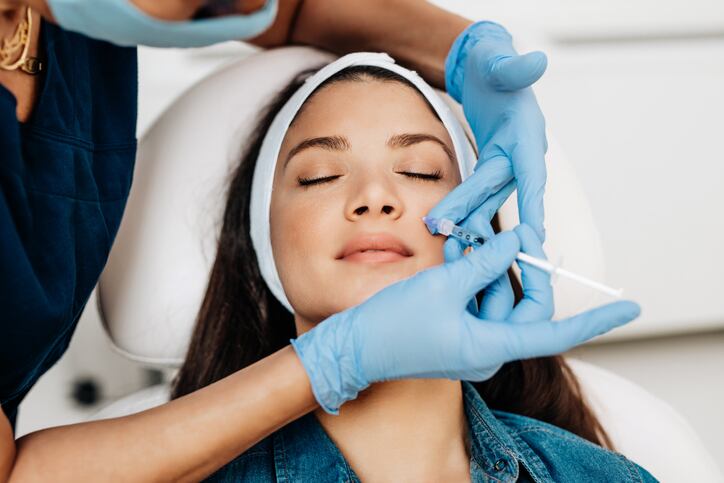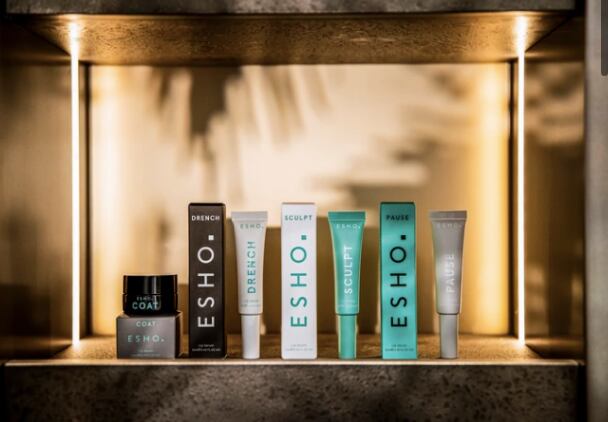Writing in Sociology Compass, researchers from the UK’s University of Oxford and University of Leeds investigated the rise of non-surgical beauty technologies and the implications these ‘tweakments’ had on the sociology of the body, tracing the history of medicalised cosmetic practices and academic discourses on the body.
Botox, fillers, peels and laser treatments
“Science, aesthetics, the body, and the concerns they attach to, such as gender, ‘race’, class, age and consumer culture, are key objects of sociological investigation,” the researchers wrote.
This was even more so the case now, they said, with the rise in accessibility and affordability of medicalised cosmetic procedures, notably non-surgical procedures such as Botox, dermal fillers, chemical peels and laser treatments that “blur the line between medical and beauty practices”.
“Where once the scalpel was the central tool of ‘aesthetic medicine’, the primacy of surgical incisions is increasingly challenged by lasers, needles and chemicals,” they wrote.
“…This shift in focus from surgical procedures to minimally invasive injections has led more practitioners to join the market of potential providers and a wider variety of consumers to seek them out. This has been accompanied by panic about the risks to bodies and aesthetic standards if stewardship of beauty should fall into the wrong hands.”
The rise of injectables – ‘an important paradox’
The researchers said injectable treatments such as botulinum toxin (Botox) and hyaluronic acid fillers were both popular options used to minimise lines and wrinkles and add volume to the skin. According to ISAPS data, more than six million Botox procedures took place worldwide in 2020 and four million filler procedures – markets estimated to be worth €3.25bn ($3.2bn) and €5.6bn ($5.5bn), respectively, according to Fortune Business Insights.
“We choose to draw attention to injectables because, as well as being the fastest growing category of non-surgical cosmetic procedures, they represent an important paradox. They are simultaneously mundane, everyday technologies and sites of controversy and dispute between medical and beauty professions.
Both their popularity and contestation indicate that injectables represent an important opportunity to revitalise sociological conceptions of desirable, or simply ‘normal’, bodies, and the role of different professions in producing them,” the researchers wrote.
And because these technologies had been through such a “democratising effect”, the possibilities of what the procedures could and should create on the human body were equally broad, they said. Today, they said, there had been so much focus on who should be performing procedures that the debate on “why, how and if” people should engage in beauty work had been limited, as had questions around the “social and symbolic risks of non-participation”.
Future considerations around identities
Looking ahead, the researchers said it would be important research was conducted to consider the lasting impact these procedures had on individuals and societal groups. It would be especially key that the shift towards “racialised, global bodies” was considered – given the rise in popularity of the ‘Brazilian butt lift’ and ‘Korean look’ eye widening procedure, among others.
“The ways in which bodies are seen and evaluated depends on technologies of looking and transformation, and these technologies are always embedded in culture,” the researchers said.
“We suggest that future research probes the way in which new technologies of enhancement are connected with re-imaginings of the body. Moreover, we encourage examination of the role of different practitioners, acting as gatekeepers to injectables and stewards of beauty, in the imagining and shaping of (un)acceptable selves.”
“…We encourage researchers to explore how imaginaries of (un)desirable bodies shape debates about appropriate use of non-surgical cosmetic procedures, alongside investigation of the situated intersections of identity that are inscribed on bodies,” the researchers said.
Source: Sociology Compass
Published online ahead of print, doi: 10.1111/soc4.13044
Title: “Tweakments: Non-surgical beauty technologies and future directions for the sociology of the body”
Authors: A. Dowrick and R. Holliday




